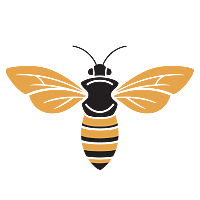|
I heard someone say the other day that no religion is completely right. It’s so true. Religions are people designed constructs intended to reduce realities of eternal, mythical, infinite proportions down to a manageable size. We want desperately to write the rules and right the wrongs of the universe so that we are in control of our own immortality. I don’t think the question should be, “which religion is right?” I don’t even think it should be “which religion is best?” I think it should be “how do things work?” Followed closely by “who or what set it all up?” And if there is a who or a what, then I want to know why? I suppose that gets to the meaning of life question. I am awed and fascinated by how well everything fits and works together when humans don’t mess it up. I may be even more invigorated when nature transcends its static capacity with the cooperative involvement of humans. Music, art, architecture, natural farming and creative horticulture, domesticated dogs, passionately crafted cuisine and beverage, poetry, and so many other things.
But humans do mess things up. Our brokenness is entwined with our glory and even though we can put together an orchestra that brings harmony out of many disparate and innovative music-making instruments, we can also spill oil into the sea, eliminate species from the planet, produce serial killers and disease, hurt each other immeasurably and ruin the most beautiful gifts. Religion can’t fix this. If we use the choice we have been given to oversimplify and control, we will just mess it up. Clearly. We’ve tried. It’s a mess. However, if we choose to follow rules like fish we maintain a kind of systemic homeostasis. Did you know there are only three simple rules that fish in fish schools follow that allow them to function harmoniously? Only three:
The fish that don’t follow these rules end up isolated and they get eaten. Those are pretty good rules for humans to follow too. Fish don’t choose them. They just follow them as part of a built-in survival mechanism. Humans can choose. Obviously, at least in Western European culture, we’ve decided we don’t need the school. We can handle the world on our own. But it’s not working. It’s a bad choice. Loneliness is showing up as a significant predictor of early death. It’s harder on our mortality than smoking and obesity. According to the CDC, our average life span is shrinking measurably because of suicide and drug overdose. It’s not hard to connect these to isolation. Psychologist Emile Durkheim said in 1897, that suicide could be understood as a failure of social integration. That’s a bi-directional failure. We are not being eaten like lonely fish but we are dying none the less. So what should we do with the choice we have? A choice that exists nowhere else in any system in the universe. I don’t know. But the answer is in our shared story. I suspect it is many answers. As we swim or play music together, or whatever community metaphor works for you, we discover the answer in the togetherness. I further suspect that as it starts to gel, we’ll find that we are to create beauty, restore health, discover the wonder that we’ve been given, and revel in it. Something like that. It’ll be good whatever it is. In the midst of the brokenness, I expect that, if we come together with all our different dependencies, we’ll find that there is much to revel in. The bad and evil in the world is a force unto itself that we do not need to submit to. The good and pure is accessible and magnify-able in our shared effort. But we can’t simplify and reduce it. It’s got to remain bigger than any one person or exclusive group. The great story analyst Joseph Campbell says that “whenever the poetry of myth is interpreted as biography, history, or science, it is killed.” I understand the poetry of myth to be the story of the mystery of how humans and the universe and the creative power from which they come all interact. It is beyond us but its mystery is worthy to be pursued even if it gets grander than we can contain when we do. We are not meant to contain it but to be made alive by it, to participate in it and to share it with each other. Sorry this post has some redundant content. I was inspired to apply the fish and choice thing in a new way by Campbell and the comments I heard about religion. The quote from Campbell comes from his book, "The Hero with a Thousand Faces."
0 Comments
Your comment will be posted after it is approved.
Leave a Reply. |
Curtis MillerI write in a geeky, sciency, hopefully poetic way about belonging, storytelling, community building, deconstruction and construction, Archives
June 2024
Categories
All
|
Proudly powered by Weebly

 RSS Feed
RSS Feed